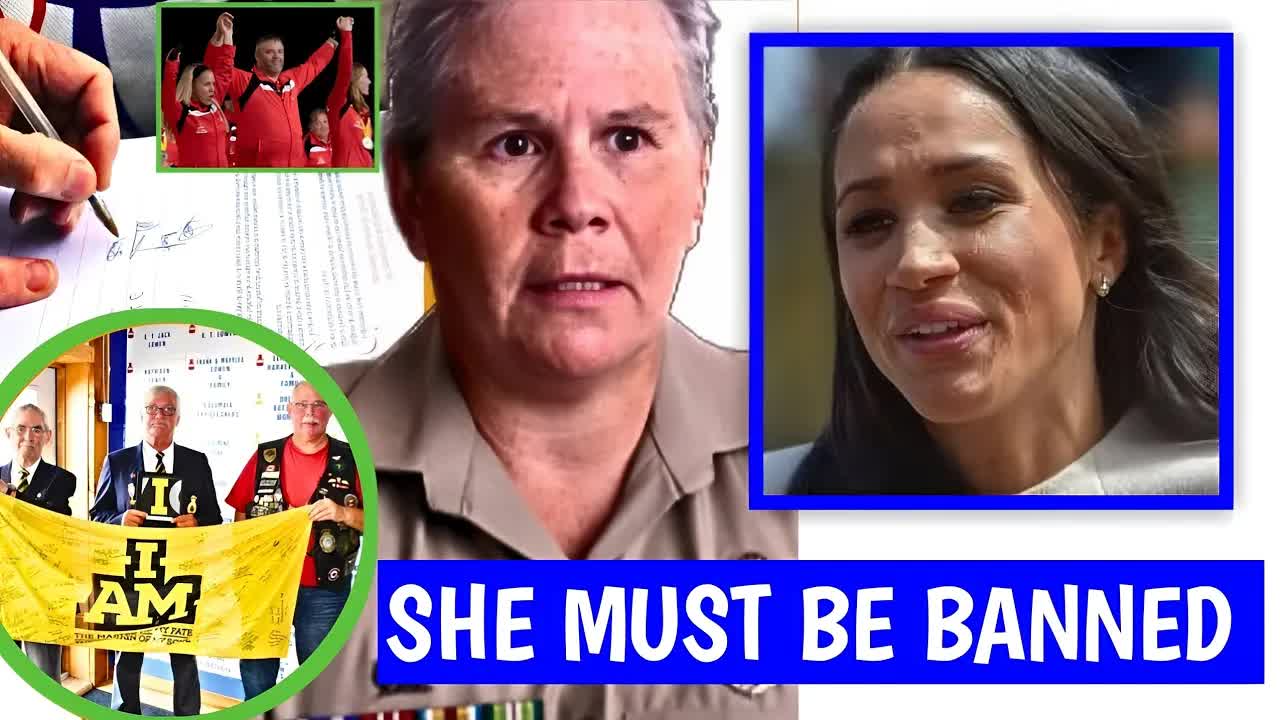Must Read
Veterans Speak Out: The Controversy Surrounding Meghan Markle and the Invictus Games
The Invictus Games, a vibrant celebration of resilience and camaraderie among wounded veterans, is currently facing an unexpected controversy.
A petition signed by thousands of veterans is calling for Meghan Markle to be banned from the 2025 event.
This surprising move raises questions about respect, authenticity, and the role of celebrities in charitable causes.
Let's delve into the reasons behind this petition and what it reveals about the intersection of celebrity and veteran support.
Founded by Prince Harry in 2014, the Invictus Games hold a special place in the hearts of veterans around the globe.
They are not merely a sporting event; they symbolize healing, community, and hope.
For many participants, these games offer a rare opportunity to compete without judgment, creating a vital space for personal growth and connection.
Given their significance, it's clear why veterans are passionate about preserving the integrity of this event.
Meghan Markle's involvement in the Invictus Games began when she married Prince Harry.
Her attendance at the 2017 Games in Toronto brought a touch of celebrity glamour, and many viewed her as a supportive partner to the cause.
However, her presence has sparked a mixed bag of reactions.
While some appreciate her support, others question her true intentions, leading to the growing discontent expressed in the petition.
The backlash against Markle stems from a variety of frustrations.
Many veterans perceive her participation as more about enhancing her personal brand rather than genuinely supporting the athletes.
This sentiment is compounded by her publicized conflicts with the royal family, which some believe detract from the spirit of the Games.
Instead of highlighting the remarkable achievements of the competitors, the media often shifts focus to Markle, overshadowing the athletes' narratives.
But is it fair to single out Meghan Markle?
The emotional stakes for veterans participating in the Invictus Games are incredibly high.
For them, this event is a sacred space where they can showcase their vulnerability and strength.
With the spotlight on celebrities, there's a palpable fear that they risk being seen as mere symbols rather than individuals with unique stories and struggles.
This tension complicates the dynamics of celebrity involvement in such a sensitive context.
Authenticity plays a crucial role in the military community.
Veterans seek support that feels genuine and personal, as trust is paramount.
Many feel that Markle's appearances lack the raw, heartfelt essence that the Games represent.
They desire allies who truly understand their experiences and challenges, not just those looking to gain visibility.
Interestingly, not all veterans are eager to see Markle excluded entirely.
Some suggest alternative ways for her to contribute that would align better with the Games' values.
For instance, she could provide behind-the-scenes support or amplify the stories of the athletes, keeping the focus on their journeys rather than her own.
This approach could help rebuild trust and foster a more authentic connection between Markle and the veteran community.
The implications of this petition extend beyond Markle herself.
It highlights a broader conversation about the role of celebrities in charitable endeavors.
How can public figures support important causes without overshadowing the very people they aim to uplift?
This ongoing debate serves as a reminder that the Invictus Games are fundamentally about celebrating resilience, not commercializing the experience.
As we reflect on this controversy, it's essential to consider how we can support the veteran community in meaningful ways.
Genuine engagement involves listening to veterans' stories, volunteering with organizations that assist them, and advocating for their needs year-round.
By prioritizing their voices and experiences, we can honor their sacrifices and contribute to a culture of respect and compassion.
This situation presents an opportunity for all involved—celebrities, charities, and the public—to rethink how we engage with sensitive causes.
The call for change initiated by the veterans' petition encourages us to focus on authenticity and humility in our support efforts.
After all, true advocacy is about amplifying the voices of those we aim to help, not seeking the limelight for ourselves.
In the end, the Invictus Games should remain a platform that honors the strength and resilience of veterans.
The current debate underscores the importance of protecting this mission and ensuring that every participant feels valued and understood.
As we move forward, let's keep the focus on the athletes and their remarkable journeys, celebrating their triumphs and sacrifices with the respect they deserve.






























